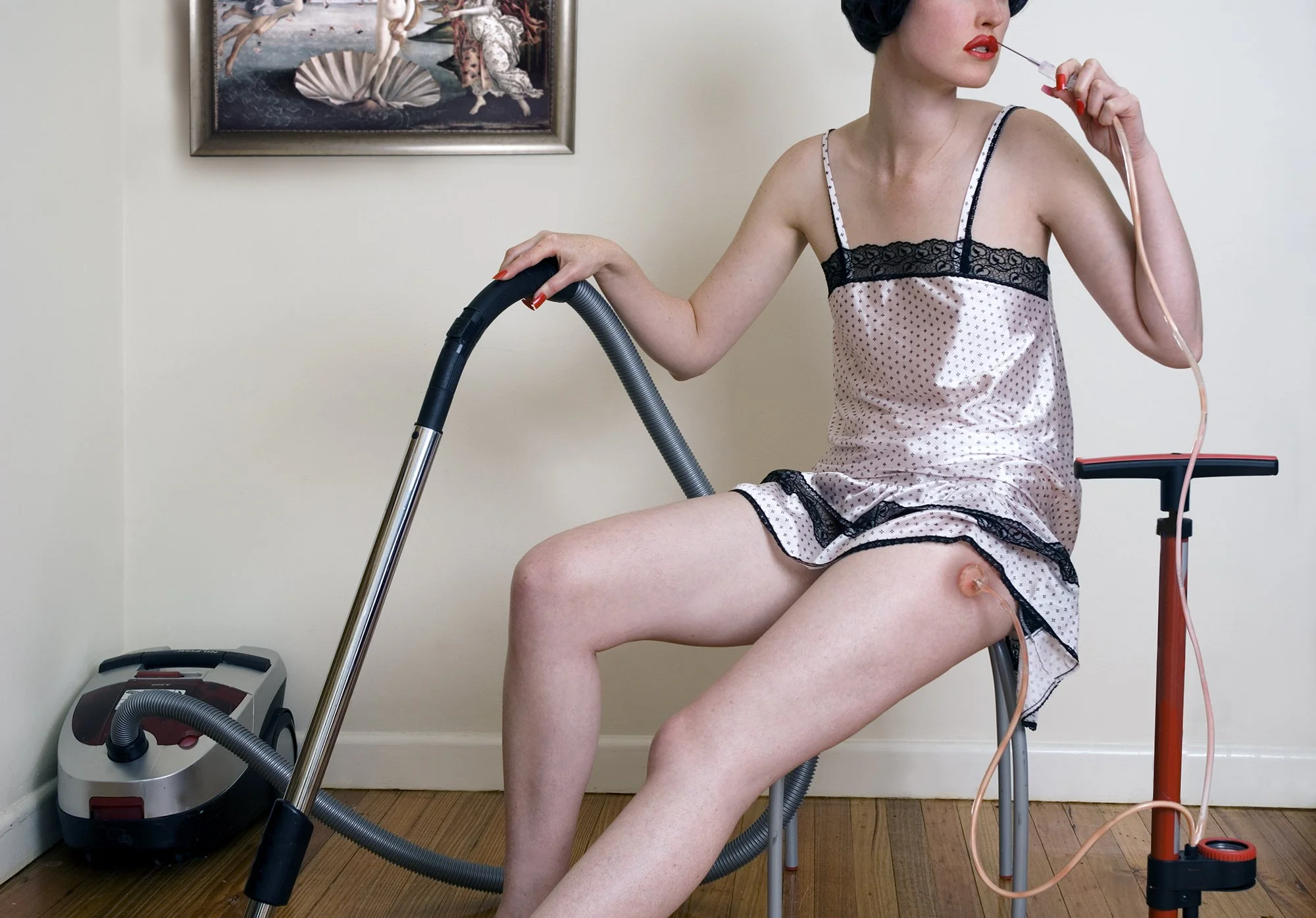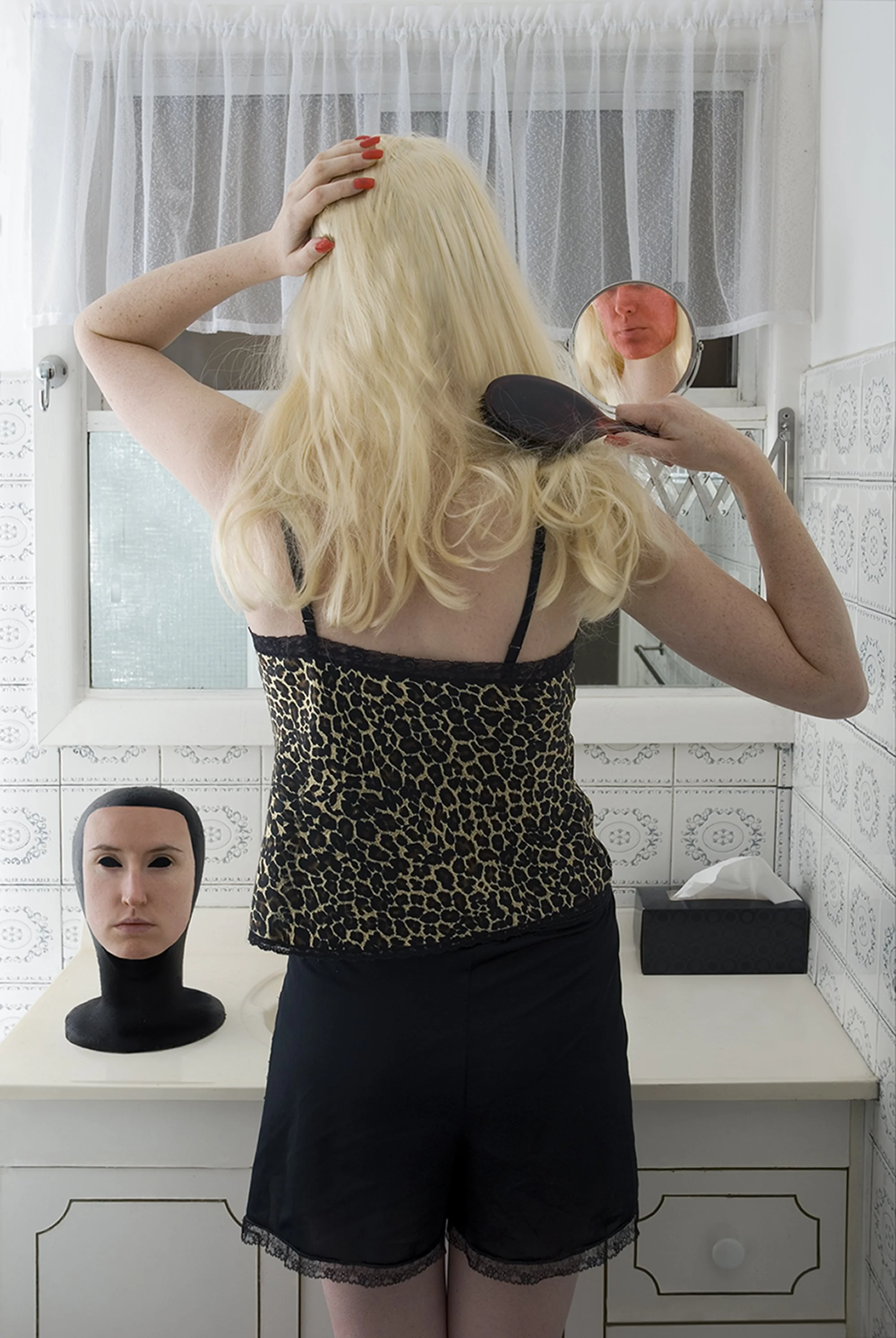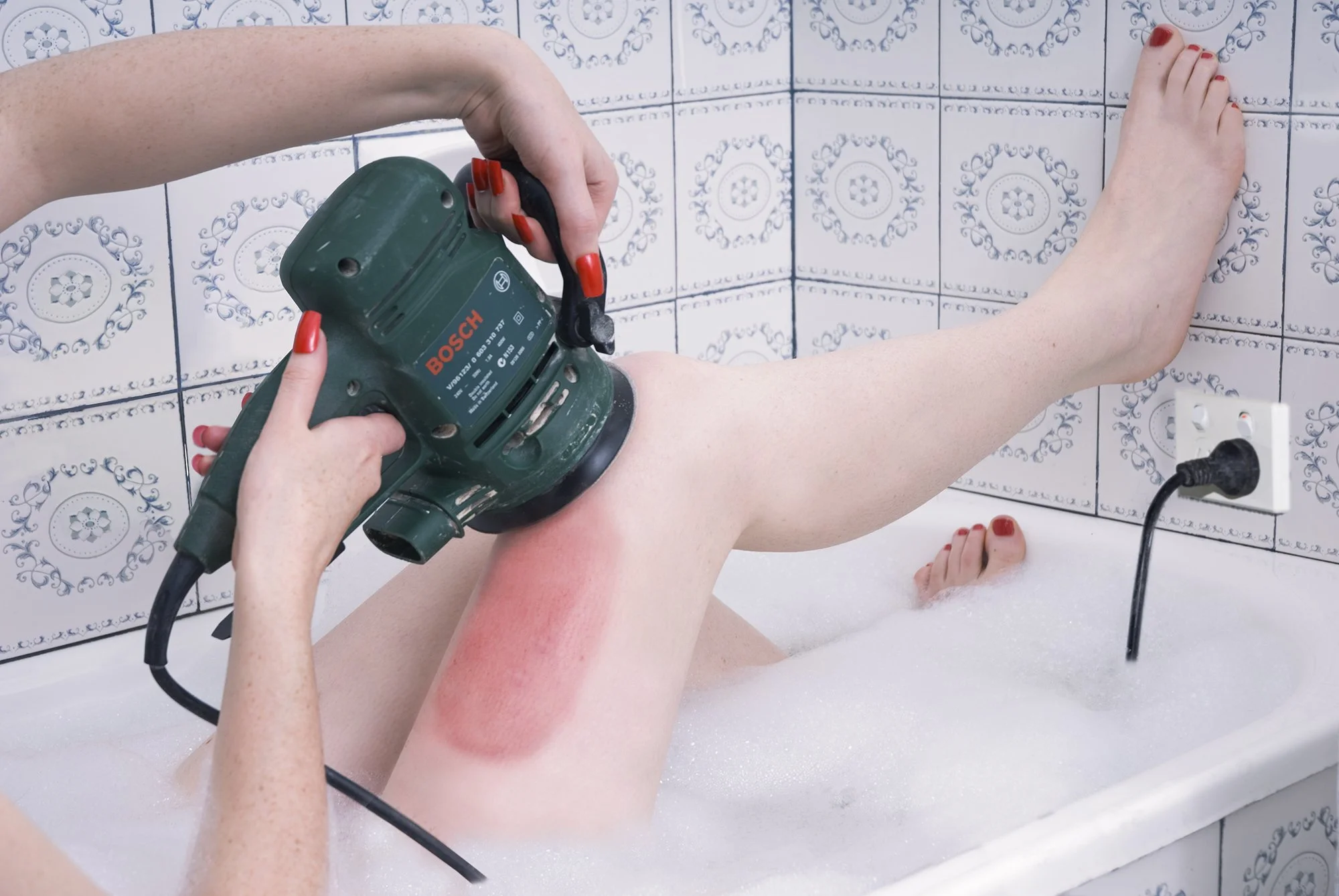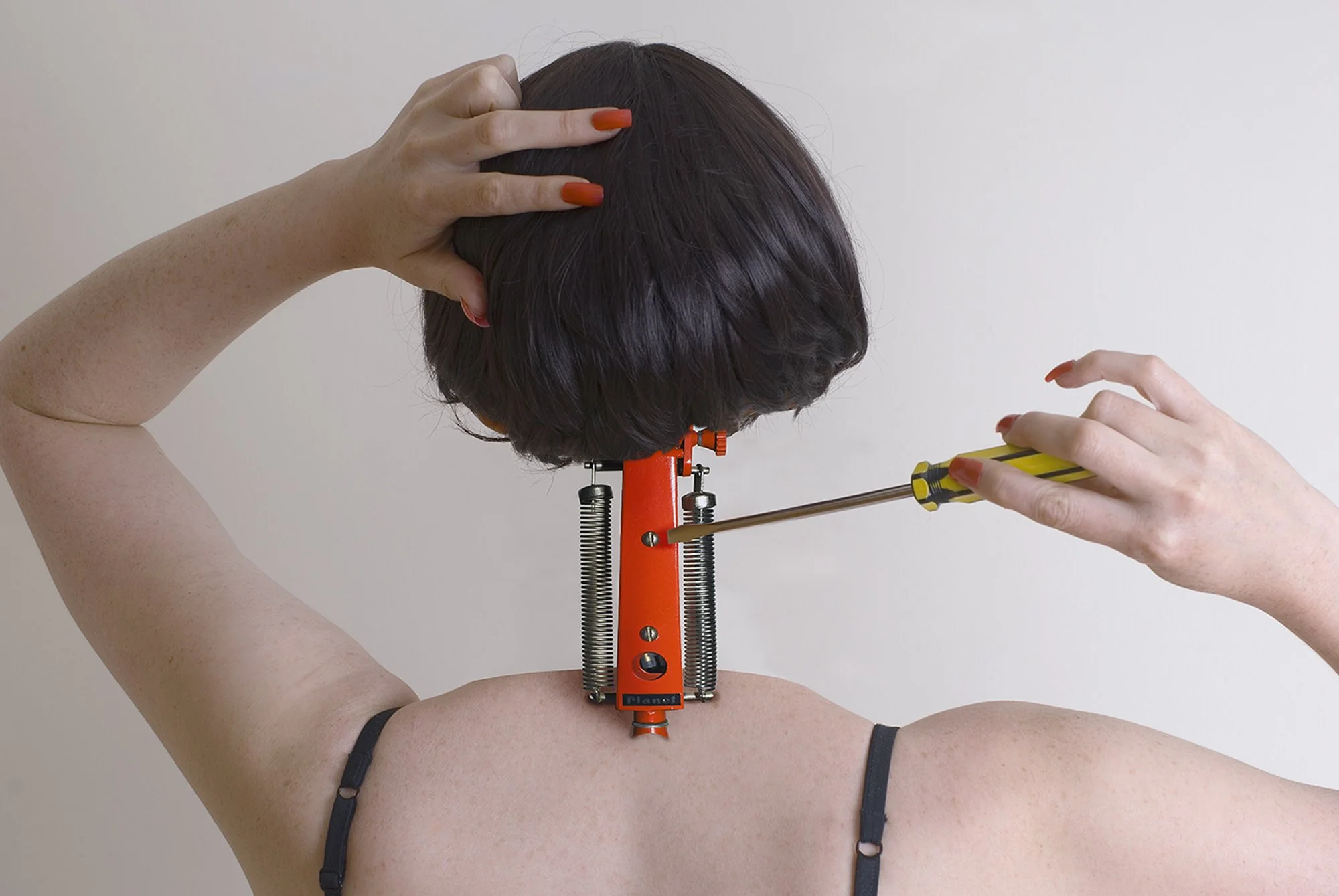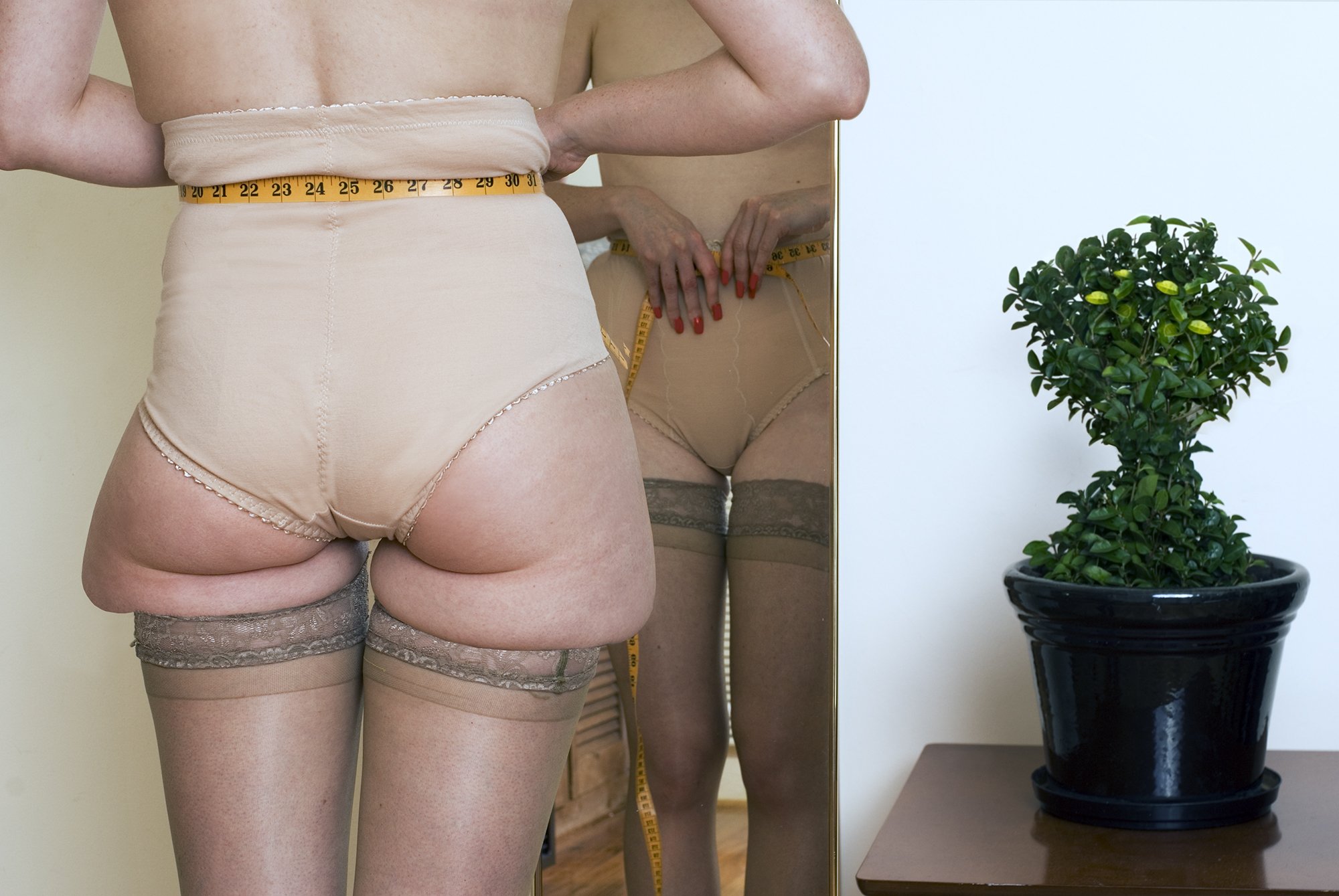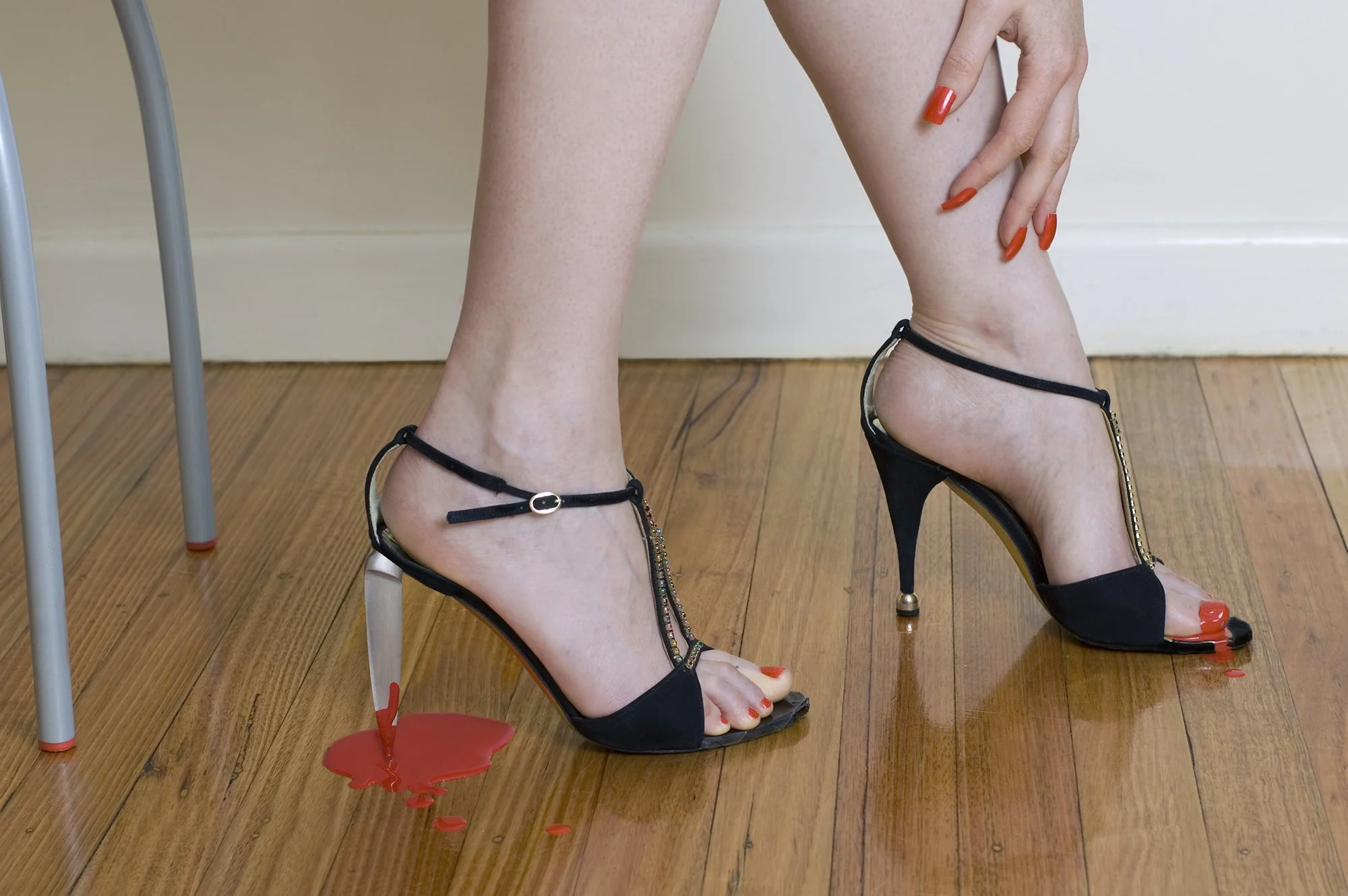Monstrous Feminine. An Interview with Jessica Ledwich
Monstrous Feminine. An Interview with Jessica Ledwich. By Chiara Pussetti
In a social context in which beauty has become a social obligation, people will undertake any alternatives to achieve some beauty, even when these alternatives might mean higher risks and even death. Everybody can potentially pursue the ideal of a perfect body, but in reality beauty is a luxury good that only a few individuals can afford without high risks. In order to improve their appareance, women invest a lot of energy, time, effort, money, and physical suffering. Many women are willing to suffer physically to be beautiful, to undergo elective cosmetic surgery carrying great health risks, and to develop eating disorders to remain attractive according to society’s unrealistic ‘forever young’ ideal. In order to maintain their social value, they must appear youthful, thin, with well-groomed skin, hair shiny as silk, preferably dyed. Preserving a beautiful youthful appearance for longer is not only an aesthetic, but also rather a moral obligation. “Letting oneself go” implies a lack of discipline, laziness, and sloppiness—all traits of a morally deplorable personality. This “body-norm” works as a morality tale that blames those outside the norm for their condition, portraying them as “unruly or negligent” for having bodies that do not measure up. Our apparent ‘freedom’ of growing older ‘naturally’ or of gaining weight, refusing cosmetic imperatives, is constrained and shaped by embodied forms of inequality that push us to see ourselves as imperfect, and to find in aesthetic biotechnologies the solution to those imperfections.
From an artistic perspective, the Australian photographer Jessica Ledwich portrays the violence of the moral imperative of beauty: when beauty norm becomes an obbligation. For this reason, women make decisions about their bodies, assuming possible risks not on the basis of health problems but on the basis of the forever-young beauty ideals proposed by consumer culture.
The Monstrous Feminine critically examines the value society places on vanity, consumerism and the pursuit of perfection and eternal youth. Historically women’s sexuality has often been portrayed as something scary, uncomfortable and threatening. There is enormous cultural fear surrounding the idea of ageing and as such there is an entire generation of women whose identities are being shaped by this. This work holds a mirror to the rituals and processes women engage with in response to these paradigms.
We would like to sincerely thank Jessica Ledwich for this interview (realized on January 24. 2022) and for the photo courtesy (All photos @Jessica Ledwich).
Jessica Ledwich is a Melbourne based visual artist whose work explores the more contentious topics of conversation. Female body culture, technology and contemporary ideals are themes that regularly feature in her work. She explores the uncanny, the abject and often the irrational to unmask the more complex side of human behaviour, analyzing its perversities, to distill down this strange phenomena we call 'culture'.
She initially studied a Bachelor of Performing Arts at Monash University, Melbourne, but found her true calling in photography and visual art. In 2011 the Australian Centre of Media Photographers selected her as 1 of 5 emerging artists in Australia for her provoking and visually seductive work, and as a feature artist in the U.S Publication Visual Overture. She regularly exhibits in Australia and overseas and her work is held in private collections in Australia, London, The United States and Hong Kong. In 2014 she completed a Master of Fine Art with Distinction at RMIT, Melbourne. Her series Monstrous Feminine received acclaim, enjoying press coverage in the US, UK, France, Italy, Spain, Germany, Russia, Australia and New Zealand and was featured in the New York photography publication Musée Magazine's WOMEN issue and the Chicago political magazine The Point. Her solo Our Desires Are Not Our Own was selected by Art Guide Australia as Top 5 Exhibition to see in Australia in August. She is a recipient of both an Australia Arts Council Artstart award as well as a Cultural Career Fund award and in 2021 she was awarded the British Journal of Photography Fast Track Award as well as the 1854 Edition365 Award.
In the Monstrous Feminine series, Ledwich depicts women in war with their bodies, willing to feel pain, invest money, risk their lives to pursue an ideal of beauty. These ‘interventions’ are supposed to transform the woman's physical characteristics to fit into dictated standards of beauty - slimmer, sexier, younger, brighter etc. The pursuit of perfection and eternal youth are the main topics of the EXCEL project that I coordinated.
We would like to sincerely thank Jessica Ledwich for this interview (realized on January 24. 2022) and for the photo courtesy (All photos @Jessica Ledwich).
First of all, as a woman, what do you think about the unrealistic demands of perfection to which the female body is subjected?
In very simple terms it makes me feel sad because we are set up to fail. To even properly answer this we need to first unpack the terms used. Firstly what is perfection? We know that beauty is a cultural construct which varies within ethnographic groups, periods of time and as a result of cultural influences. What are deemed 'desirable physical traits’ constantly shift in line with trends and frankly the whims of capitalism. This is why it is a losing battle because the parameters are constantly redefining themselves. Technology and social media has merely amplified this, fostering a monoculture of bodies deemed to be ‘perfect’. Filters, digital manipulation and augmented reality have made ‘perfection’ completely unattainable as it is completely artificial. So a large amount of the population are comparing themselves to ideals that in reality don’t exist. This creates dissatisfaction. This creates fear. And in a capitalist driven society both of these equal opportunities to make money. There are no profits to be made in a society that values individuality and imperfections.
We would like to sincerely thank Jessica Ledwich for this interview (realized on January 24. 2022) and for the photo courtesy (All photos @Jessica Ledwich).
Looking at the Monstrous Feminine photographs we feel that these women are victims of high social pressure. Why did you choose the title “Monstrous Feminine”?
The title was taken from Barbara Creed’s ’The Monstrous Feminine: Film, Feminism, Psychoanalysis’ which explores interpretations of horror films that present women predominantly as victims. Her book challenged this inherently patriarchal view by arguing that most definitions within film of the monstrous are associated with the female reproductive body. I was interested in exploring this through series of performative photographs that engage with the monstrous things women do to themselves in the pursuit of beauty and perfection. I was interested in exploring this notion of being a ‘victim'. We choose to do these things to ourselves so in one sense we are exhibiting agency over our bodies, however why do we choose to do these painful and often quite dangerous procedures? Who is telling us that we must do this in order to be deemed a worthy member of society? Popular culture presents beauty and ageing as something we can control and therefore deny and in doing so implicitly suggest consequences for not doing so.
We would like to sincerely thank Jessica Ledwich for this interview (realized on January 24. 2022) and for the photo courtesy (All photos @Jessica Ledwich).
What are the ‘monstrous’ aspects you want to highlight?
The images shift between the grotesque and the absurd. In one image the woman buffs her leg with a Bosch sander, in another she squeezes her flesh into control pants only to have the flesh mushroom out in other areas. I think my aim was to remove the context of these actions which is what makes them acceptable (e.g going to a cosmetics office to have fat sucked out of your hips and put into your lips) and place them in the domestic realm as an activity a woman undertakes whilst doing the vacuuming. Many of these acts are monstrous - have you ever seen a video of liposuction happening?? If that isn’t the very definition of monstrous then I don’t know what is.
If we do not perfectly fit society's standards, we are not enough. Which photograph best translates the frustration of unattainable ideals of beauty?
I would say the control pants - you do your best to make yourself fit an ideal and then something else pops out that you need to deal with. The moral is it will never be enough because the goal posts keep shifting.
I've read that you've worked as a fashion photographer. Could you tell me how the ideal body that is constructed and exhibited by the fashion industry (that sells an ideal of perfection) is linked to your critical gaze in the Monstrous Feminine project?
As a fashion photographer you were always working with pre-determined ideals of beauty. The client wanted the model to look a certain way, have a certain body type, skin type, hair type. I found myself questioning why every image was just another version of the same look. No one wanted anything to fall outside very narrow parameters. This irritated me. This bored me.
Do you think we can consider your artwork as ethnography-based?
This work is a series of performative gestures and I use myself as subject. It comes from the position of a white, heteronormative middle class perspective as this has been the dominant ideal that has been presented as desirable by mainstream culture. However I think this is not only an exploration of wider cultural attitudes but a means of processing my own feeling in relation to them.
Can you tell us more about your engagement with the topic or your project’s participants?
My aim is not to denigrate women for partaking in this but rather to hold a mirror and ask questions of all of us, myself included.
Some of her most arresting images are available below. Check out more of Ledwich's work on her website: https://www.jessicaledwich.com
The female body is always problematized, represented as a malleable entity that can be shaped and perfected by the discipline and hard work of its owner. Women’s bodies are never perfect enough, and are potentially open to reconstruction: at any age, women are engaged in a project that is always in-progress, trying to correspond to a hegemonic beauty ideal that denies ageing. Only if you are thinner, firmer, smoother and younger, will you be better; you will have a more passionate relationship, a better career, more friends and success; you will be happier. Otherwise, if you are unable to ‘fix’ your aesthetic ‘problems’ and to ‘solve’ the signs of bodily ageing, you should consider yourselves to have failed.
Women are told that they are unstoppable: they can change or obtain anything they so desire, with sheer willpower. It depends entirely on them: with willpower and discipline, nothing is impossible. Women can control the tangible, physical, somatic reality, but also more abstract processes such as ‘the ageing process,’ ‘time’, ‘gravity’ and ‘the future’. The battlefield is their body, in an inexorable war against oneself and the natural course of life. The hegemonic body-norm ends up excluding the most vulnerable people in society. In our very unequal world, this means that a wide swath of humanity is largely excluded from the best technologies of appareance-improvement, as the more desirable technologies become branded as luxury items limited to those with access to the best health care systems, or to those with the purchasing power to buy the ideal body. Today, beauty is not a choice. Or, at least, it is not an equal choice for everyone; we do not all have access to the same resources or the same possibility to choose: a certain configuration of the social order restricts the ability and freedom of choice of certain individuals or groups, even when we are talking about access to beauty or the preservation of a youthful appearance. The hegeminic body-norm ends up excluding the most vulnerable people in society. In our very unequal world, this means that a wide swath of humanity is largely excluded from these technologies of self-improvement, as the more desirable technologies become branded as luxury items limited to those with access to the best health care systems, or to those with the purchasing power to buy the ideal body. None of the women I interviewed, exploring the ways we age, can be judged a superficial person for spending energy and money trying to maintain her beauty, wanting to look “young and beautiful” again. So, today, although beauty treatments have become much more accessible, beauty is not a choice. Or, at least, it is not an equal choice for everyone; we do not all have access to the same resources or the same possibility to choose: a certain configuration of the social order restricts the ability and freedom of choice of certain individuals or groups, even when we are talking about access to beauty or the preservation of a youthful appearance.
Monstrous Feminine critically examines the value society places on vanity, consumerism and the pursuit of perfection and eternal youth. Ledwich’s artwork holds a mirror to the beauty rituals and processes women engage with in response to these violent ideals of perfection.
Jarrín A. and Pussetti C. (Eds) 2021. Remaking the Human: Cosmetic technologies of body repair, reshape and replacement. Oxford, New York: Berghahn Books.
Pussetti C. 2021. Because You’re Worth It! The Medicalization and Moralization of Aesthetics in Aging Women. Societies 2021, 11, 97: 1-16.
